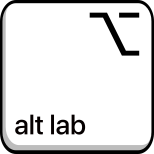The research and development work conducted under ALTLab and associated centres and laboratories involves multiple fields in linguistics, of which a sample of possible research project topics are given below, allowing for research projects ranging from a directed research course (LING 375, 475) all the way through a Honours thesis and Master’s project to a Ph.D dissertation:
Lexicography: creating an (electronic) dictionary for an indigenous language consisting of spoken and written words and example sentence utterances; semantic make-up of a dictionary; comparisons of dictionaries; creation of new terminology for new domains
-
semantic classification of the contents of several Plains Cree dictionaries → analysis and discussion of the results for one dictionary, or the comparison of three dictionaries
-
structural scrutiny and comparison of several Plains Cree dictionaries, based on a manual analysis of samples of lexical entries (orthography, morphology, lexical content) and/or computationally extracted dictionary cognates
-
an analysis of similarities and differences in animacy classification of Plains Cree nouns (basic and derived) in three Plains Cree dictionaries
-
an analysis on the determinants of animacy in Plains Cree nouns derived from verbs (tripartite animacy hierarchy of conjugation classes: 0/1/2 animate participants)
Phonology: differences in words spoken in isolation as part of utterances; regularity of phonological reduction and deletion
Corpus creation and analysis: creation of new spoken and written corpora from scratch; stem-morpheme co-occurrences and their semantic motivations
-
corpus creation issues: design, challenges, representatives
-
a quantitative, corpus-based analysis of preverb combinatorics in Plains Cree
-
a quantitative analysis of the semantic motivations of morphological preferences/constraints of Plains Cree nouns (animate/inanimate) or verbs (animate nouns and locatives, person/tense preferences of verbs, etc.)
Computational Linguistics/Language technology: computational modeling of some aspect (phonetics/phonology, morphology, syntax) of an indigenous language; un/semi/supervised learning of word paradigms from data; creation of linguistic tools (spell-checker, computer-aided language learning application, speech synthesizer); training an Optical Character Recognition algorithm for the orthography of some indigenous language
-
weighted finite-state transducer for linguistic analysis, or for ranking of correction suggestions in spell-checking
-
computational modeling of Plains Cree verb derivation (diminutives, nominalization) and incorporation
-
report on the conversion of a Plains Cree/Northern Haida computational model for linguistic analysis for normative purposes into a spell-checker: how does one need to adapt/restrict the model
-
corpus-based, computational analysis of morpheme-morpheme and morpheme-stem combinatorics of Plains Cree nouns and verbs → incorporation of the results as training OCR for Plains Cree/Northern Haida texts written in some historical orthography and converting the results according to modern orthography
Psycholinguistics: evaluation of the perception and quality of linguistic tools (speech-synthesizer, spell-checker, etc.); perception of phonological traits vs. orthography (vowel quantity, syllable reduction and deletion); CALL-based evaluation of language acquisition and learning
Applied linguistics
-
some variant of discussing the development and use of end-user tools from the user/community perspective
Historical and comparative linguistics
Sociolinguistics: the relationship of societal structure and relationships and linguistic structure; what happens to an (indigenous) language community when its interactions and contacts expand from several hundred to millions
-
impact/motivations of creating standardized orthography and dealing with synchronic variation ← based on resources; based on stake-holder interviews
-
interaction with indigenous language communities in a sustainable, ethical way
Novel linguistics
- something we haven’t thought about, but you have

4 thoughts on “Full curriculum of research topics”
Comments are closed.